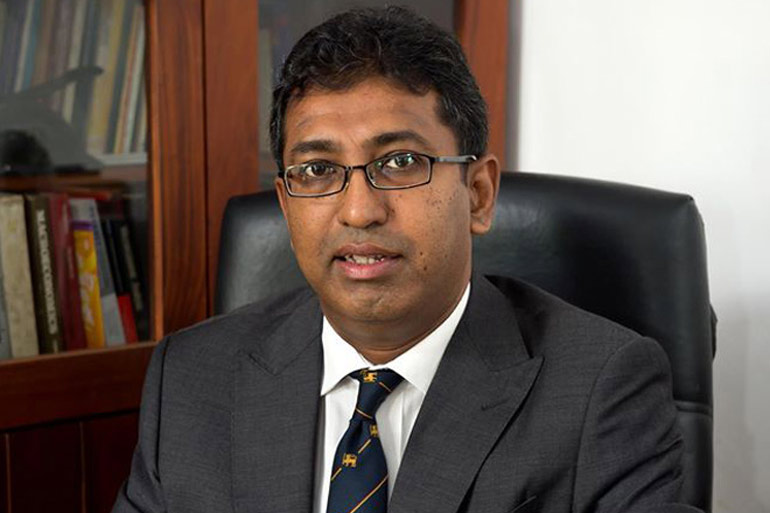Thursday Feb 19, 2026
Thursday Feb 19, 2026
Monday, 19 October 2015 00:00 - - {{hitsCtrl.values.hits}}
 Deputy Minister of Foreign Affairs Harsha de Silva
Deputy Minister of Foreign Affairs Harsha de Silva
South China Morning Post: The new Government is banking on Chinese investment to revive a port project that became a symbol of the previous government’s excesses bankrolled by China, the South China Morning Post reported.
Hambantota gained notoriety as a port without ships and was the butt of opposition criticism of then President Mahinda Rajapaksa’s tendency to throw Chinese money at vanity projects in order to line his pockets.
Following Rajapaksa’s ouster in January’s presidential election, the new government first toyed with the idea of turning the port into a ship-breaking yard, before deciding to make it a dockyard.
“We have $ 1.5 billion sunk in the project and no revenue. We need to make use of it. We want Chinese investors to come and help turn it into a dockyard as well as invest in an industrial park there,” Deputy Minister of Foreign Affairs Harsha de Silva told the South China Morning Post in an exclusive interview.
Among Sri Lanka’s leading economists, de Silva has been put in the foreign ministry to drive economic diplomacy in the national unity government put in place after parliamentary elections in August.
“The Chinese have expressed interest in the project. Hopefully things will start moving after Colombo Port City is sorted,” he said, alluding to a stalled Chinese-funded real estate reclamation project in Sri Lankan capital that has become a bone of contention between the two countries. The new government has shelved Port City, making China wary of investing in the South Asian country.
The Sri Lankan cabinet has approved a plan by China Harbour Engineering Company (CHEC) to do a feasibility study to build the dockyard at Hambantota. CHEC has also proposed to manage and operate the dockyard.
Hambantota is among the many big-ticket infrastructure projects China funded during Rajapaksa’s rule. Sri Lanka is estimated to have received up to $ 5 billion from China in the form of aid, soft loans and grants in the past six years. Nearly 70% of the infrastructure projects in the country have been funded by China and built by Chinese companies. Funded by a Chinese loan of $ 316 million in 2010, the port received just six ships in 2011 and 18 in 2013. Traffic picked up thereafter partly due to government incentives. But the port that was touted as a competitor for Singapore has continued to bleed the government, drawing opposition fire for wasting public money on projects that only helped China. Now in power, the anti-Rajapaksa forces are also looking for Chinese funding but in a different way.
“China is a big source of project funding the world over. There is no denying that,” de Silva said. “But we want Chinese funds as investment, not loans. The loans we have been taking from the Chinese are taking a toll on the government. More than a third of our tax revenue goes into loan servicing.” China Exim Bank funded 85% of the $ 361 million for the first phase of the Hambantota project that was executed by CHEC and Sinohydro. With barely enough ships to cover its operational costs, the port incurred annual interest payments of $ 16.5 million in 2012, $ 18.5 million in 2013 and $ 16.7 million last year.
Rajapaksa still went ahead with the second phase, costing $ 808 million, again funded by China. That contract was given to state-controlled and Hong Kong-listed China Communications Construction Company (CCCC) and China Merchants Group. China Merchants Holdings International and CCCC were also granted exclusive operating rights to four berths at the port.
Also contracted to undertake all land reclamation and infrastructure works for the Colombo Port City project, CHEC is a subsidiary of CCCC, which is financing the controversial real estate project. De Silva also urged China to invest in the 45 export-driven special economic zones the Sri Lankan government plans to set up, primarily catering for the Indian subcontinent. “Sri Lanka enjoys a geographical advantage in the Indian market,” he said. “More than 70% of all transshipment through Colombo is India-related traffic. If China wants to tap that market, Sri Lanka is the place to set up shop.”